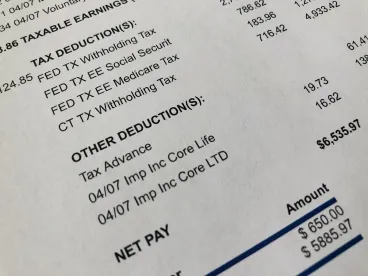This year, employers have been worried about the impending forfeiture of their employees’ flexible spending account dollars given that many employees couldn’t use those dollars throughout much of the year due to the closure of day care facilities and summer camps and the postponement of health care services as a result of the COVID pandemic. The Taxpayer Certainty and Disaster Tax Relief Act of 2020, which was included in the year-end budget and COVID relief package signed by President Trump on December 27, 2020, includes some welcome (albeit late) relief for flexible spending accounts (FSAs).
There are several new rules available for FSAs:
-
The normal rule for health care FSAs is that year-end balances are forfeited, unless the employer permits up to $550 to be carried over into next year to pay claims incurred at any point during the year (the “carryover rule”) or permits an unlimited amount to be used to pay for claims incurred during the first 2½ months of the year (the “grace period rule”). Dependent care FSAs are eligible for the grace period rule but not the carryover rule.
Under the new law, both health care and dependent care FSAs may apply either the carryover rule or the grace period rule for unused amounts as of the end of 2020 with two important changes: (1) the carryover rule is not subject to the $550 cap and (2) the grace period rule can be applied for a full 12 month period, not just 2½ months. As a practical matter, the effect is the same – the full amount of unused balances at the end of the 2020 plan year can be used to pay claims incurred in the next plan year.
The same rule will apply for plan years ending in 2021 – unused balances at year-end 2021 can be carried over (uncapped) into 2022 or available for a 12-month grace period in 2022.
Importantly, the new law did not change how FSAs interact with health savings account (HSA) eligibility, so employers will want to carefully consider how the implementation of these rules might impact an employee’s eligibility for a HSA in either 2021 or 2022.
-
The normal rule is that an employee’s FSA election is irrevocable for the plan year, unless the individual experiences a change in status event as permitted by the cafeteria plan rules.
Under the new law, for plan years ending in 2021, an employer may permit an employee to make a prospective change to their health care or dependent care FSA elections at any time for any reason. This is especially helpful if an employer chooses to take advantage of the carryover or grace period rules described above – because employees will have more money to spend next year than they expected, they may want to dial back or eliminate the FSA elections they made for 2021.
-
The normal rule for dependent care FSAs is that an employer may design their plan to allow an employee who ceases to participate to continue to access their FSA for dependent care claims incurred through year-end. For health care FSAs, an employee who ceases to participate normally may only access the FSA pursuant to COBRA.
Under the new law, an employer may permit employees who ceased to participate in a health care FSA during 2020 or 2021 to use their remaining balance through the end of the year in which participation ceased (plus any grace period) without regard to electing (or paying for) COBRA.
-
The normal rule for dependent care FSAs is that expenses incurred after a child turns age 13 are ineligible for reimbursement.
The new law provides that if a participant enrolled in a dependent care FSA had a child that turned age 13 in the 2020 plan year (more specifically, in the plan year for which the open enrollment period ended on or before January 31, 2020), then the participant may be reimbursed for expenses incurred after the child’s 13th birthday for the remainder of that plan year, or if there is an unused balance at plan year end, in the following year until the child turns age 14.
None of these changes are mandatory; an employer may choose to implement some, all, or none of them. Amendments to FSA plans reflecting the change must be made by the end of the plan year after the year the change is effective.





 />i
/>i

